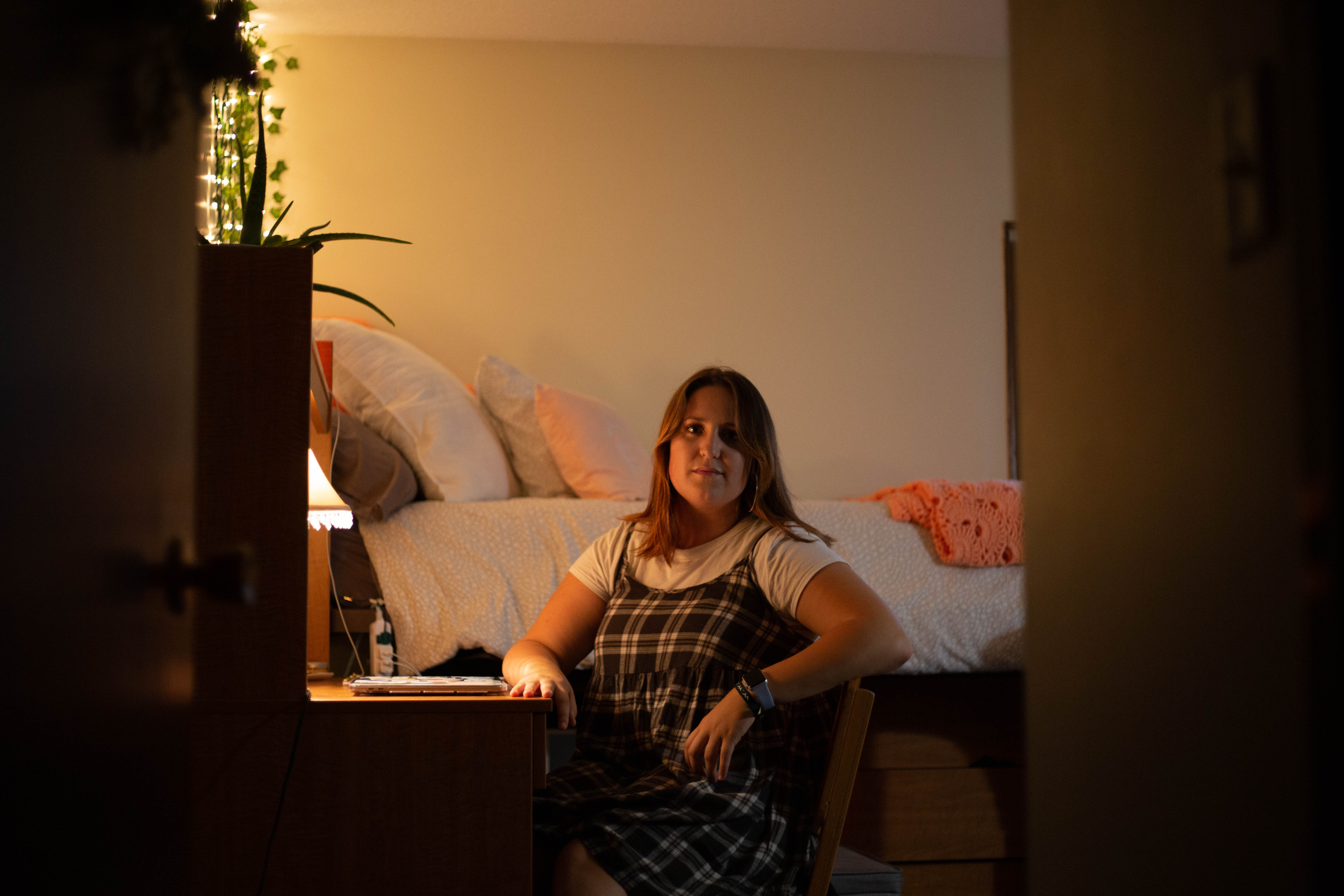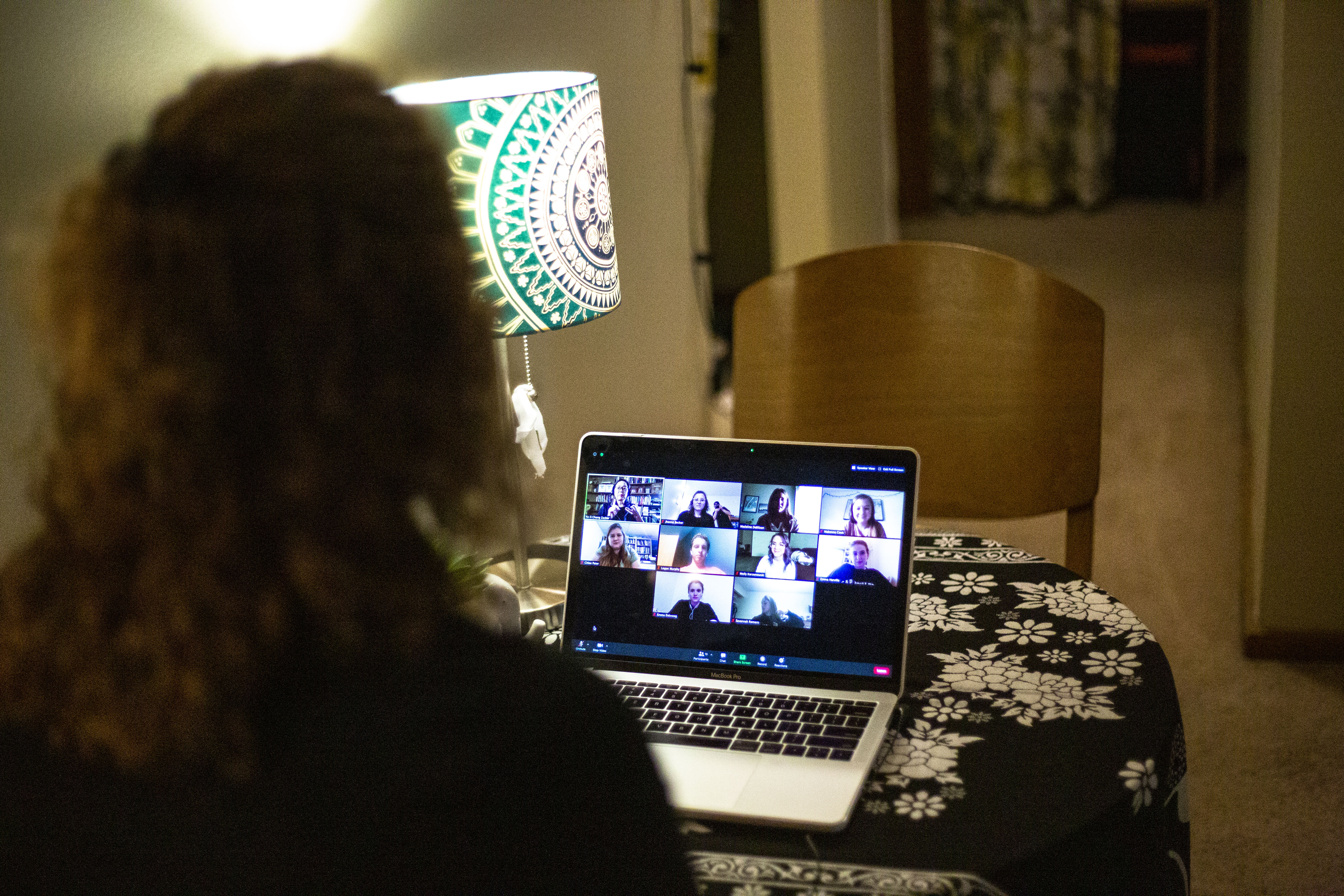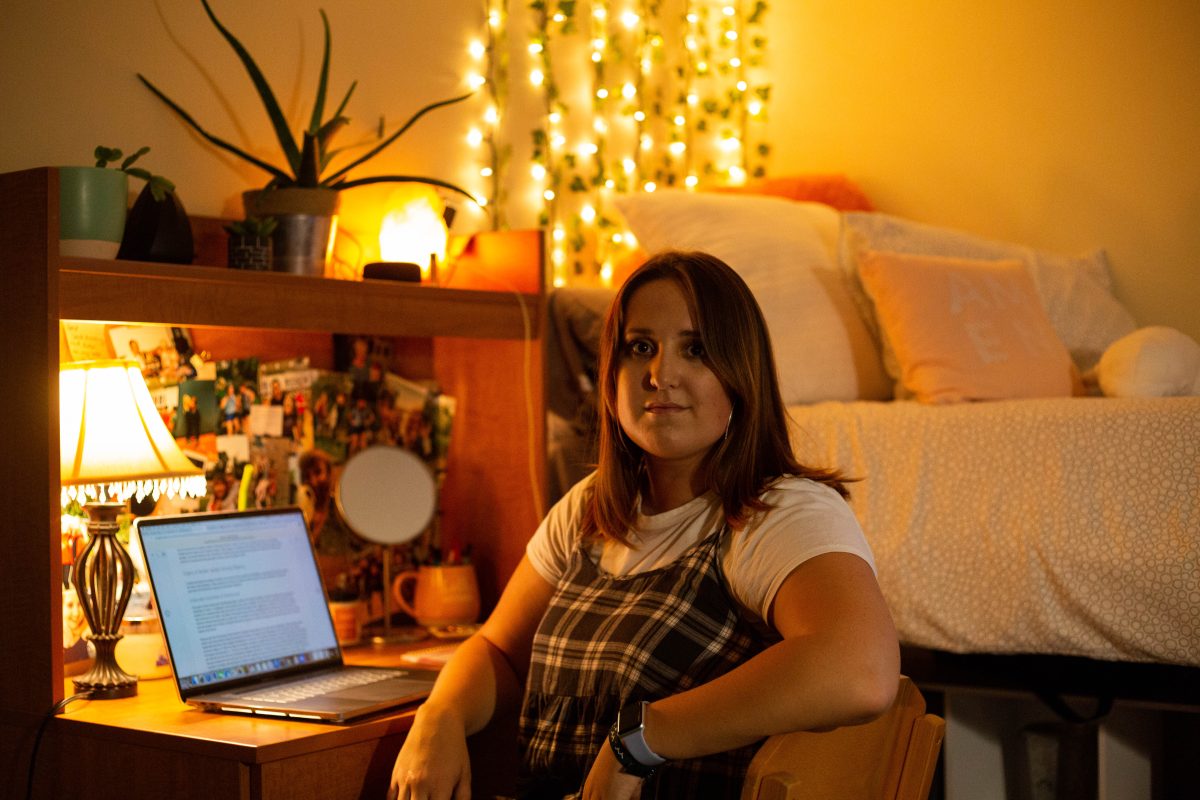By Makenna Cook
Bethel University junior Molly Longtin sighed as she discussed having to wear her hearing aids again. Before COVID-19 she was able to get by without them, using her two interpreters and lipreading.
Now, Longtin must figure out how to learn in a new reality where everyone wears face coverings and lipreading is no longer an option.
Longtin was born with a cleft lip, which doctors believe contributed to her diagnosis of sensorineural hearing loss in first grade. While she can hear some speech, certain letter sounds are difficult for her to understand.
Throughout high school, interpreters in the classroom helped Longtin understand lectures. Her classmates were aware of her hearing loss and accessibility needs, so her accommodations were never an issue. But in college, having interpreters follow her around seemed to be a different story.

“When I have an interpreter in class, people don’t really come up to talk to me; they kind of try to avoid me,” Longtin said. “Here [at Bethel] I’ve had many professors who have never had an interpreter in their class. It’s just a lack of understanding and awareness, which isn’t always their fault, or anyone’s fault. A lot of people just didn’t grow up with interpreters [in the classroom].”
Bethel provides accessibility accommodation options for the 10 undergrad students and seven seminary and graduate students who are deaf or hard of hearing.
But when COVID-19 swept through the U.S. in March, the mask mandate cut off access to lipreading for one in five individuals in Minnesota.
“[Masks] were something we were sensitive to right away as the conversations of face coverings came up this summer as we prepared for it,” Bethel Director of Accessibility Resources and Services Liz Burd said.
Bethel junior English and Journalism double major Jhenna Becker lost her hearing during the first year of her life. She is now profoundly deaf and wears two cochlear implants.
“Literally so much has changed because of COVID,” Becker said. “Having classes online is not ideal. The way technology distorts video and sound makes it really difficult.”
When Bethel took their classes to a Google Hangouts setting this spring, the Office of Accessibility and Resources and Services, also known as OARS, was able to secure a closed caption option for virtual classes.

Closed captioning is something Becker wants to see more of throughout Bethel’s campus. Currently, captioning is supplied during events to students who need them when they ask the OARS office in advance according to the Office of Accessibility and Resources.
The OARS is currently supplying clear masks to professors of deaf and hard of hearing students, as well as anyone else who asks for them. These clear masks allow those who rely on lipreading to be able to follow conversation.
Clear masks are not a recent development – the Deaf community has been troubleshooting this communication issue since masks were mandated.

“Not being able to hear people or read their lips at all; sometimes it makes me want to cry,” Becker said.
Jhenna Becker changes the batteries in her coclear implants. | Photo by Will Jacott
For many deaf and hard-of-hearing students, the classroom is not the only place where masks have caused a communication barrier.
“Not being able to hear people or read their lips at all; sometimes it makes me want to cry,” Becker said. “I use facial expressions and reading lips everyday. I can hear with my cochlear implants too, but it just doesn’t help. I need to have the full picture.”
Longtin didn’t immediately consider accessibility when filling out college applications, but she knew about Bethel’s ASL program and hoped the university would be more aware of the Deaf community than others in the area.
Bethel University offers American Sign Language 1 and American Sign Language 2 for students to fulfill their S-tag, but there is currently no major or minor for ASL.
While Longtin found Bethel community members to have good intentions when addressing accessibility concerns, she sees a fine line between giving support and pitying the Deaf community.
“[Students] think it’s like a charity case… pity is something that is very rampant in the hearing community towards the Deaf community,” Longtin said.
Longtin hopes more education on the Deaf culture and community is something in Bethel’s future. A basic way this could be achieved, she says, is through hiring professors from the Deaf community.
“It’s just like wearing glasses, [but] instead of wearing glasses I’m wearing hearing aids,” Longtin said. “You can’t see and I can’t hear. It doesn’t make things more difficult, it’s just different.”

![Nelson Hall Resident Director Kendall Engelke Davis looks over to see what Resident Assistant Chloe Smith paints. For her weekly 8 p.m. staff development meeting in Nelson Shack April 16, Engelke Davis held a watercolor event to relieve stress. “It’s a unique opportunity to get to really invest and be in [RAs’] lives,” Engelke Davis said, “which I consider such a privilege.”](http://thebuclarion.com/wp-content/uploads/2024/05/041624_KendallEngelkeDavis_Holland_05-1200x800.jpg)















